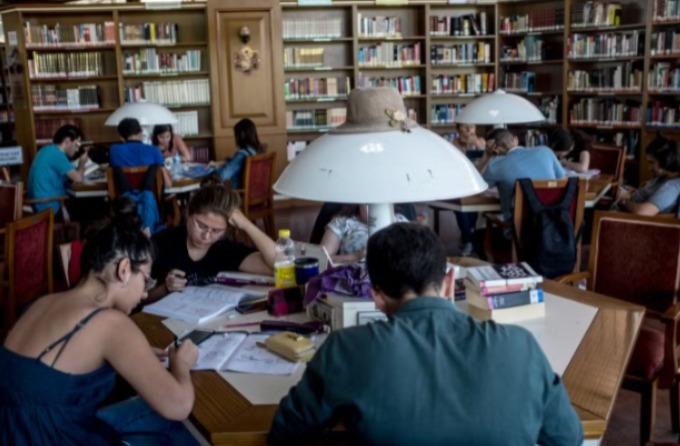Turkey Risks Losing Entire Generation of Youth Amid Education Crisis

Students working in a library in Istanbul, Turkey, on September 8, 2017. YASIN AKGUL / AFP
ISTANBUL — Turkey is facing the prospect of losing an entire generation of young people, according to recent reports compiled as of November 2025.
The alert was sounded in a feature by Le Monde that noted a dramatic increase in young people aged 18-24 who are neither in employment, education nor training (NEET).
According to Le Monde, Turkey’s youth crisis is being driven by a combination of declining higher education outcomes and weak labour-market entry: “with one-third of 18- to 24-year-olds neither employed, in school, nor in training,” the feature warns.
President Recep Tayyip Erdo?an announced in early October 2025 a sweeping reform to shorten university degrees from four years to three, citing a need to align academic programmes with labour-market needs.
“Thanks to these reforms, Turkey’s higher education system will be both more effective and better aligned with international standards,” Erdo?an said, as quoted by Le Monde.
However, analysts and educators are sceptical about the reform’s timing and substance. Data from the Organisation for Economic Co?operation and Development (OECD) show that Turkey’s NEET rate for young adults (18-24) stands at roughly 33.5 %, more than double the OECD average of 13.8 % in 2023.
Further compounding the issue is that Turkey reportedly has one of the lowest upper-secondary vocational attainment rates within the OECD framework and lower job-market incorporation of university graduates.
Educational experts suggest the risk of creating a “lost generation” is real. “When the link between education and employment breaks, people don’t see a reason to stay in education,” one expert told Le Monde.
If these trends persist, Turkey may face long-term ramifications: weaker productivity growth, increased social welfare burdens, and heightened vulnerability of large cohorts of young people to disenfranchisement.
In comparison with other OECD countries, Turkey’s youth exclusion and education-employment mismatch are extreme signalling a structural challenge rather than a cyclical one.
With global competition intensifying and human capital becoming ever more critical, Turkey’s policymakers may need to implement urgent, comprehensive reforms in education-labour linkage, vocational training, and youth employment strategies.
Editor :Farros
Source : Le Monde, OECD




























